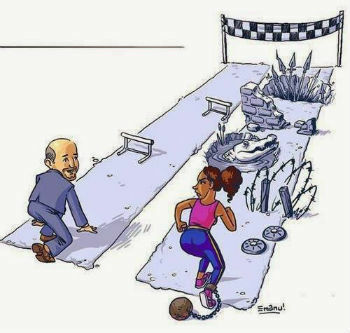In sociology, social interaction is a concept that determines the social relationships developed by individuals and social groups.
It is an indispensable condition for the development and constitution of companies. Through interactive processes, the human being becomes a social subject.
It is from this that human beings develop communication, establishing social contact and creating networks of relationships, which result in certain social behaviors.
Social interaction has been one of the most discussed topics nowadays in the fields of sociology, anthropology and philosophy.
This is because, in contemporary society, dominated by the media and new technologies, the social interaction takes on a new look, that is, it is also developed over the internet, so virtual.
The phenomenon and expansion of the internet has provided new forms of social dynamics and interactions, while it can generate social problems (social exclusion and isolation), or even other types of prejudice via the network (cyberbullying).
Classification and Examples of Social Interaction
According to the type of relationship established, social interaction can be:
- Reciprocal Social Interaction: when there is interaction between the parties that will interact, which can be, people or groups. In this case, both influence each other and determine social behavior, just as in a conversation with friends.
- Non-Reciprocal Social Interaction: in these types of interaction, the main characteristic is unilaterality, that is, when the social interaction of both parties, for example, when we are watching television (only us who are influenced by it and not the other way around).
Summary
Two important thinkers addressed the topic of interaction, relationship and social processes, as well as presented various aspects of human development. They are: Lev Semenovich Vygotsky (1896-1934), a Belarusian thinker, and Jean William Fritz Piaget (1896-1980), a Swiss thinker.
For Vigostsky (1896-1934), social interaction has a very important role in the development of human beings. He claims that “man's behavior is formed by peculiarities and biological and social conditions of his growth”.
For Piaget, the human being (social being) is influenced by the social relationships he develops during his life. It is from these relationships that social behaviors are developed. As Piaget observes, the socialization process is developed in several stages: child, teenager, adults.
Complement your research by reading the articles:- Social Structure
- Social Space
- social groups
- Social role
- Socialization Process
- Social relationships
- Social networks
- Social isolation
- Social inclusion
- Social exclusion
- What is Sociology?
- Popular culture
- Sociology in Enem: what to study


